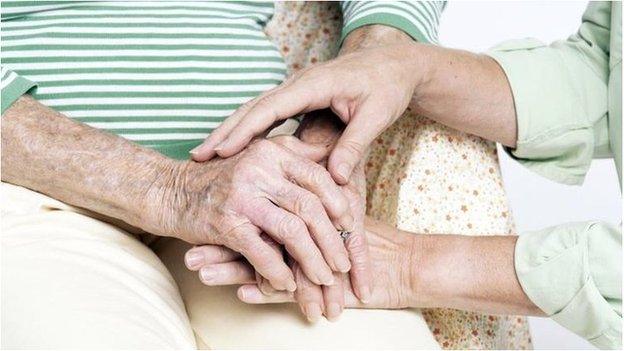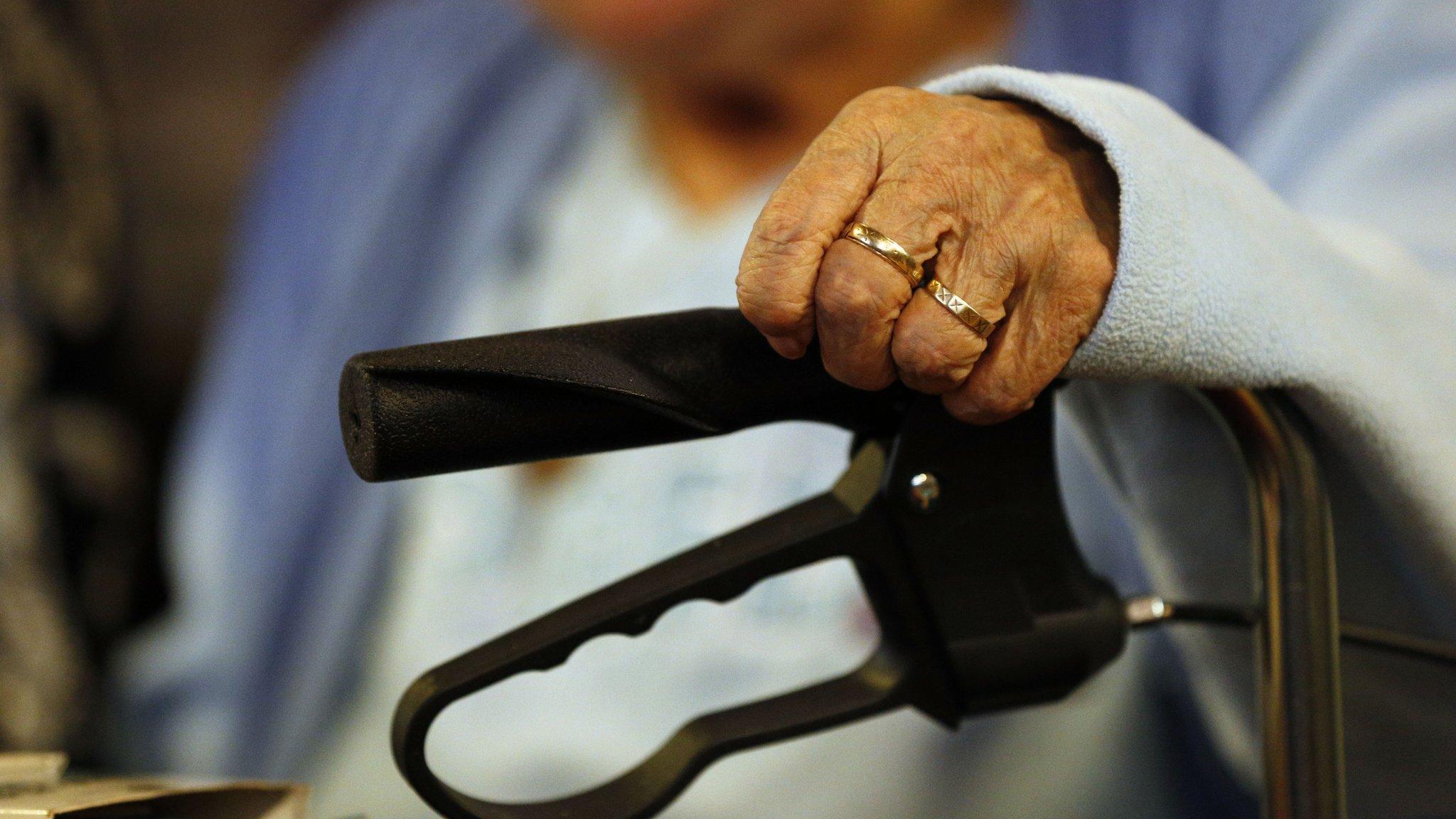Home care 'being short changed'
- Published

Just one in seven councils in the UK is paying a "fair" price for home care for the elderly, according to a survey.
About 500,000 people rely on the support, which includes help with washing and dressing.
The UK Homecare Association poll of more than 200 councils found 28 paid a "minimum price" of £15.74 an hour.
This is the price the body, which represents the agencies that provide the home care for councils, believes reflects the national minimum wage.
The UKHCA warned if the squeeze on fees continued, the care sector would become "unsustainable".
The "minimum price" has been calculated by using the national minimum wage and then adding to that the costs of running the service, including travel costs for staff and pension contributions.

Of the £15.74 fee, 47p is set aside for profit or surplus.
To find out how many councils - or health and care trusts in Northern Ireland - paid that amount, the UKHA asked all 211 bodies for the information, under the Freedom of Information Act.
In total 206 responded, with 28 paying above that rate to external agencies, which provide the majority of the care in the UK.
The UK average was £13.66 an hour, with Northern Ireland having the lowest average rates at £11.35 out of the four parts of the UK. Wales had the highest at £14.28.
The amount paid ranged from under £11 an hour in Liverpool, Knowsley, and by Northern Ireland's Western trust, to over £22 an hour in Inverclyde.

BBC Cost of Care project

The BBC has launched an online guide to the care system for the over-65s. The "care calculator" covers both residential care and the support provided in people's own homes, for tasks such as washing and dressing.
Users can submit their postcode and find out how much each service costs where they live in the UK.
There is also a dedicated BBC Cost of Care website with news stories, analysis and video.

UKHCA policy director Colin Angel said: "Low prices paid for home care carry a number of risks, including poor terms and conditions for the workforce, insufficient resources to organise the service and insufficient training for the complex work that supports the increasingly frail and disabled individuals.
"Unless this underfunding is addressed, the independent and voluntary sector will continue to struggle to recruit and retain care workers with the right disposition, training and qualifications.
"Ultimately, the care market will become commercially unsustainable."
Caroline Abrahams, of Age UK, said the low rates were "just another symptom of a social care system that is grotesquely underfunded".
"Everyone is losing out as a result, care providers, front-line staff and older people most of all," she said.
And Councillor Izzi Seccombe, of the Local Government Association, said the squeeze on finances had "forced councils to ask providers to run services on tighter margins".
"It is clear that continued cuts to funding for adult social care is putting an impossible squeeze on councils and providers to deliver care for our most vulnerable," she added.
- Published9 February 2015

- Published28 July 2015
